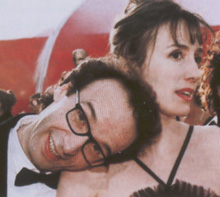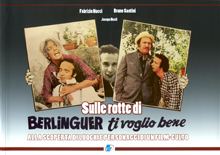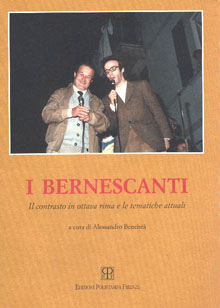Ricerca Veloce
Ricerca Avanzata
chiudi

Roberto Benigni
Roberto Benigni nasce a Misericordia, un paesino della provincia di Arezzo, il 27 Ottobre del 1952 e si trasferisce ancora giovane a Vergaio, un paese non lontano da quello natale ma nel Pratese. Con il suo modo divertito e divertente e l’inconfondibile accento toscano, coinvolge lo spettatore. Godendo di un consenso praticamente incondizionato da parte del pubblico. Ma dietro l’ilarità che i suoi film e gli spettacoli producono, non c’è solo mestiere e improvvisazione, ma cultura: a cominciare dai saggi sul riso di Henri Bergson. E affermazioni, dette dall’attore quasi per caso, come “l’umorismo è la contraddizione della comicità: lo dice Schopenhauer”. Ma Benigni se la ride: non vuole teorizzare i propri lavori, ma viverne la vivacità. E ribadisce che il divertimento, la comicità, sono cose che l’hanno sempre attratto, fin da bambino.
In gioventù pratica l’ottava rima andando al seguito di alcuni poeti estemporanei.
Ottiene una certa notorietà nel mondo dello spettacolo verso la metà degli anni ’7O, recitando divertenti e trasgressivi monologhi: l’esordio come attore cinematografico, datato 1977, è Berlinguer, ti voglio bene di Giuseppe Bertolucci, dove viene ripreso nelle situazioni come nel linguaggio– il personaggio già da lui portato alla ribalta. Benigni porta avanti la sua attività di regista e di sceneggiatore (oltre che di attore) di film in cui spesso compare anche la moglie Nicoletta Braschi. Nascono così nell’ ’84 Non ci resta che piangere, in cui gli è accanto Massimo Troisi, nell’88 Il piccolo diavolo, nel ’91 Johnny Stecchino e nel ’95 Il mostro ; tutti film che ottengono un vasto successo tra il pubblico italiano. Al successo internazionale Benigni arriva con La vita è bella, che nel 1999 gli vale l’Oscar come migliore attore.
Roberto Benigni was born in Misericordia, a village in the province of Arezzo, on 27 October 1952 and moved while still young to Vergaio, a village not far from his birthplace but in the province of Prato. With his amused and entertaining manner and unmistakable Tuscan accent, he engages the audience. He enjoys virtually unconditional approval from the audience. But behind the hilarity that his films and shows produce, there is not only craft and improvisation, but culture: starting with Henri Bergson's essays on laughter. And statements, said by the actor almost by chance, such as 'humour is the contradiction of comedy: Schopenhauer says so'. But Benigni laughs it off: he does not want to theorise his work, but to experience its liveliness. And he reiterates that fun, comedy, are things that have always attracted him, ever since he was a child. In his youth, he practised ottava rima, following some extemporary poets. He achieved a certain notoriety in the world of show business in the mid-1970s, reciting amusing and transgressive monologues: his debut as a film actor, dated 1977, he is Berlinguer, ti voglio bene by Giuseppe Bertolucci, where the character he had already brought to the fore is taken up in the situations as well as in the language. Benigni continued his activity as director and screenwriter (as well as actor) of films in which his wife Nicoletta Braschi often appeared. Thus were born in '84 Non ci resta che piangere, in which Massimo Troisi sits next to him, in '88 The Little Devil, in '91 Johnny Stecchino and in '95 The Monster; all films that achieved great success with the Italian public. International success came for Benigni with La vita è bella, which won him an Oscar for Best Actor in 1999.
Vedi anche...
I Bernescanti
- € 15,36
- € 18,08

